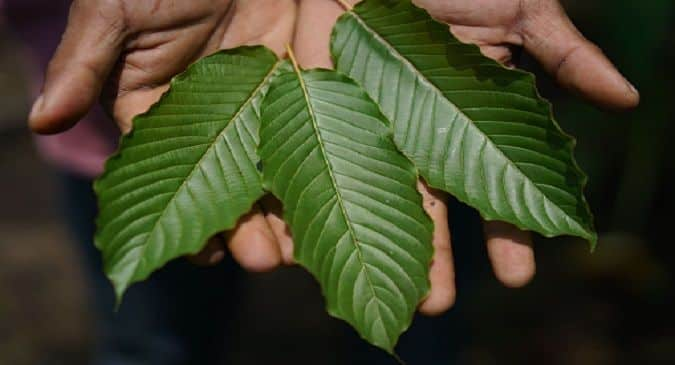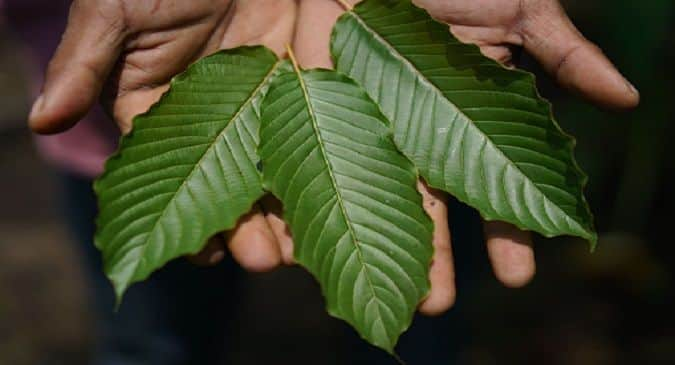Learn about brain health and nootropics to boost brain function
The Kratom controversy: Is it a friend or a foe?


Kratom, the plant that has long been used in Southeast Asia has landed in the middle of a controversy after it made inroads in the American market for health supplements. Even the FDA has warned consumers not to use this plant’s extracts as a supplement. The FDA is concerned about the fact that kratom, which affects the same opioid brain receptors as morphine, has properties that expose users to the risks of addiction, abuse and dependence. Though it is legally available in the US, some other countries like Thailand, Australia, Malaysia and a few European countries have banned its use.
KRATOM CAN CAUSE TOXICITY
A new study has also contributed to the controversy by questioning the use of this natural supplement for the treatment of opioid addiction and pain. The study was conducted at the Binghamton University for a retrospective review of kratom exposure and to determine the toxicities associated with its use. Scientists also reviewed records from a County Medical Examiner’s Office in New York State to identify the fatalities associated with this herb.
According to one of the researchers involved in this study, though kratom is not as strong as some other prescription opioids, it does still act as an opioid in the body. In larger doses, it can slow down breathing and act as a sedative meaning that patients can develop the same toxicity they would if using another opioid product. This herb can also reportedly cause seizures and liver toxicity. Scientists believe that kratom may have a role in treating pain and opioid use disorder, but more research is needed to verify its safety and efficacy.
During the study, a total of 2312 kratom exposures were reported, with 935 cases involving kratom as the only substance. It most commonly caused agitation (18.6 per cent), tachycardia (16.9 per cent), drowsiness (13.6 per cent), vomiting (11.2 per cent) and confusion (8.1 per cent).
Serious effects of seizure (6.1 per cent), withdrawal (6.1 per cent), hallucinations (4.8 per cent), respiratory depression (2.8 per cent), coma (2.3 per cent) and cardiac or respiratory arrest (0.6 per cent) were also reported. It was also listed as a cause or contributing factor in the death of four decedents identified by the County Medical Examiner’s Office.
According to the study results, kratom should not be available as an herbal supplement.
WHAT IS KRATOM?
Kratom is a tropical evergreen tree that belongs to the coffee family. Native to countries like Myanmar, Thailand, Malaysia, and other South Asian countries, kratom leaves and extracts have long been used as a stimulant, sedative and in alternative medicines. People around the world use kratom to self-treat symptoms of depression and anxiety. Its benefits come from the ingredients it contains, which are the alkaloids mitragynine and 7-hydroxymitragynine. If you take this supplement in a lower dose, it will have an energising effect. But higher doses have sedative effects. This herb is known by different names like biak, kakum/kakuam, ketum, thang and thom in different parts of the world.
HOW DO PEOPLE HAVE IT?
You can take it as capsules, tablets, gum, tinctures or extracts. You can also directly eat the leaves. Making a cup of kratom tea is a good way to consume it. You can also dry these leaves, grind them and make a powder out of them to have with water. It can also be smoked or vaporised. It is said that the effects of kratom varies depending on the way it is consumed.
DOSAGE GUIDELINES
The dose of kratom depends on your age, sex and health status. Also, as mentioned earlier, the way you consume it, also influence its effects. Usually, kratom extract is considered to be significantly more beneficial compared to kratom powder. This is what science says.
A survey was conducted at the University of Florida in 2018. In that survey, 8,049 kratom users participated. Most of the people reported that having 5 grams of kratom powder, 3 times daily, was enough to experience the required effects. According to general wisdom in the field, consuming 1 to 5 grams of the powder every day can increase your focus and energy. However, consuming more than 15 grams of kratom powder is risky. Though it can reduce your irritability or agitation, this dose can also put you at serious health risks.
POSITIVE AND NEGATIVE EFFECTS
Consuming kratom has both positive and negative effects and they last for around two hours if taken in low to moderate doses. As far as its benefits are concerned, it can enhance your mood, energy, focus and reduce your anxiety level. Also, you can have it for muscle relaxation. You can see the results within 5 to 10 minutes of taking it. Though most people are able to tolerate kratom, it may affect others adversely. These side effects may be mild to severe. Mild side effects include a dry mouth, itching, constipation, dizziness, vomiting, etc. However, severe symptoms can be heart palpitation, loss of libido, insomnia, memory problem, kidney problem, etc.
SOME HEALTH BENEFITS TO CONSIDER
While the negative effects of kratom shouldn’t be overlooked, one should not negate the benefits of this herb as well. It is effective in countering certain health conditions if taken in the rightly prescribed dosage. Here, we tell you about them.
Boosts your immune system
Kratom leaf extracts are known to have antimicrobial activity. Also, they are a good source of antioxidants, which destroy free radicals and protect the cells and tissues. These antioxidants can strengthen your immune system, says a study published in the journal Molecules.
Increases your energy level
Kratom leaves increases your energy levels by optimising certain metabolic processes and positively impacting hormone levels, says a study published in the American College of Clinical Pharmacy. It also improves circulation of blood to areas of the body that requires it. Naturopaths and ayurveda experts suggest people with chronic fatigue syndrome to have kratom leaves as a natural solution.
Improves your sex drive
According to a research conducted at the Universiti Putra Malaysia, consuming kratom can increase your sex drive and boost fertility. This happens due to its ability to increase blood circulation and energy.
Reduces anxiety
According to European Addiction Research, kratom leaves are anxiolytic substances that can be helpful for people with chronic stress, depression, anxiety and mood swings. These leaves do so by regulating the hormones in our body.
Helps in managing diabetes
Kratom leaves contain alkaloids that can help to regulate the amount of insulin and glucose in the blood. This way, they effectively prevent the risk of diabetics and also help manage it.
Click here to view full article